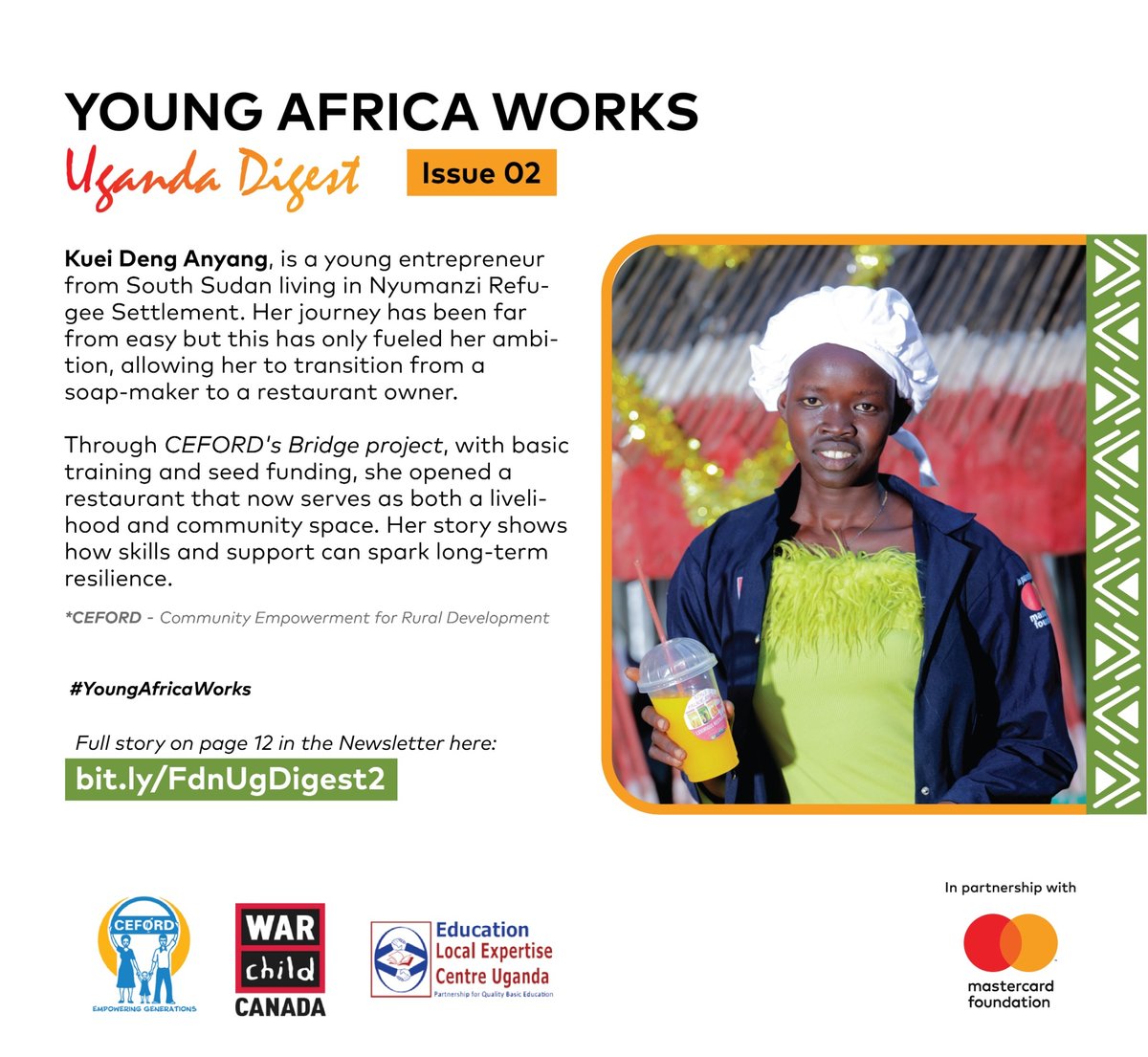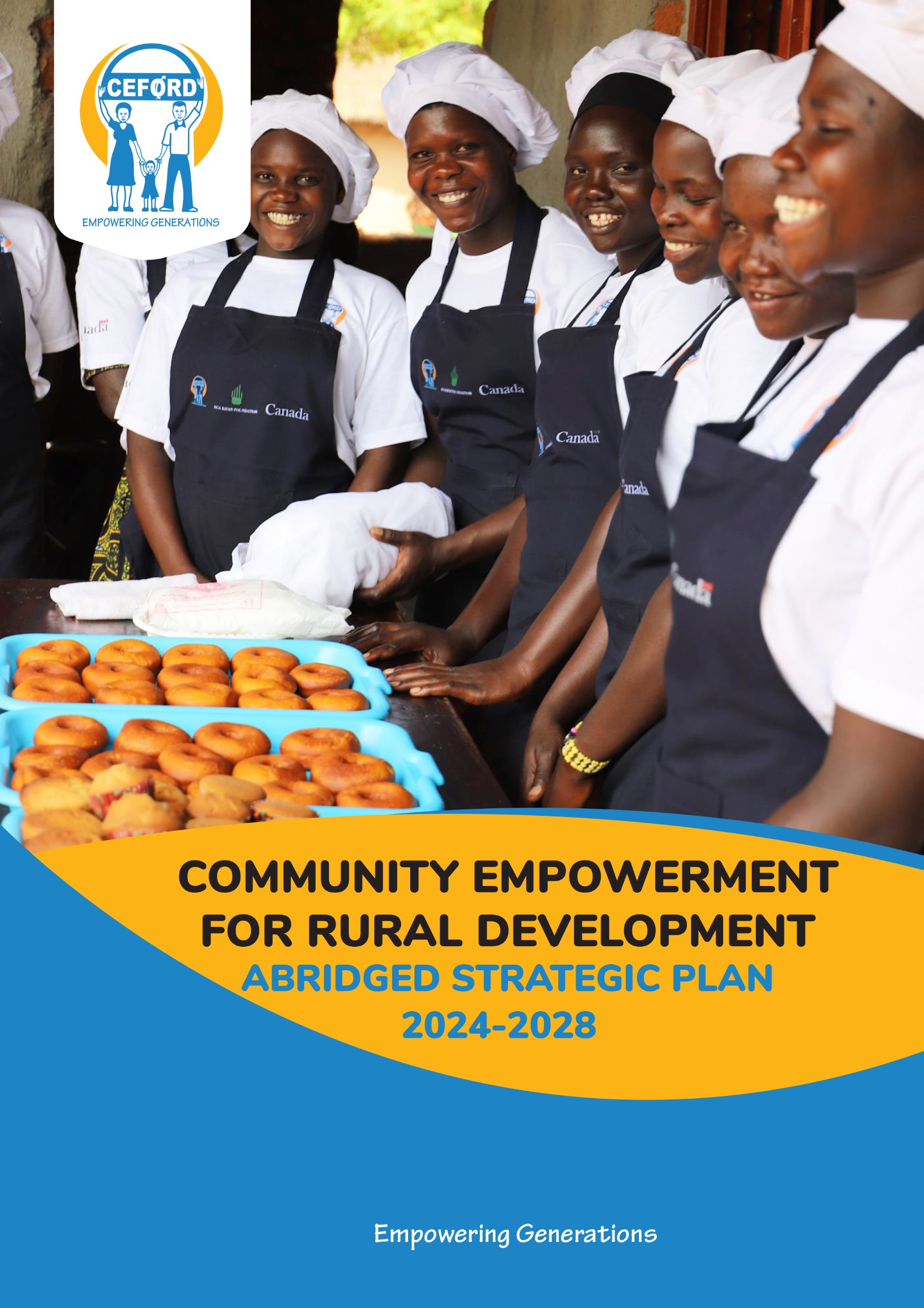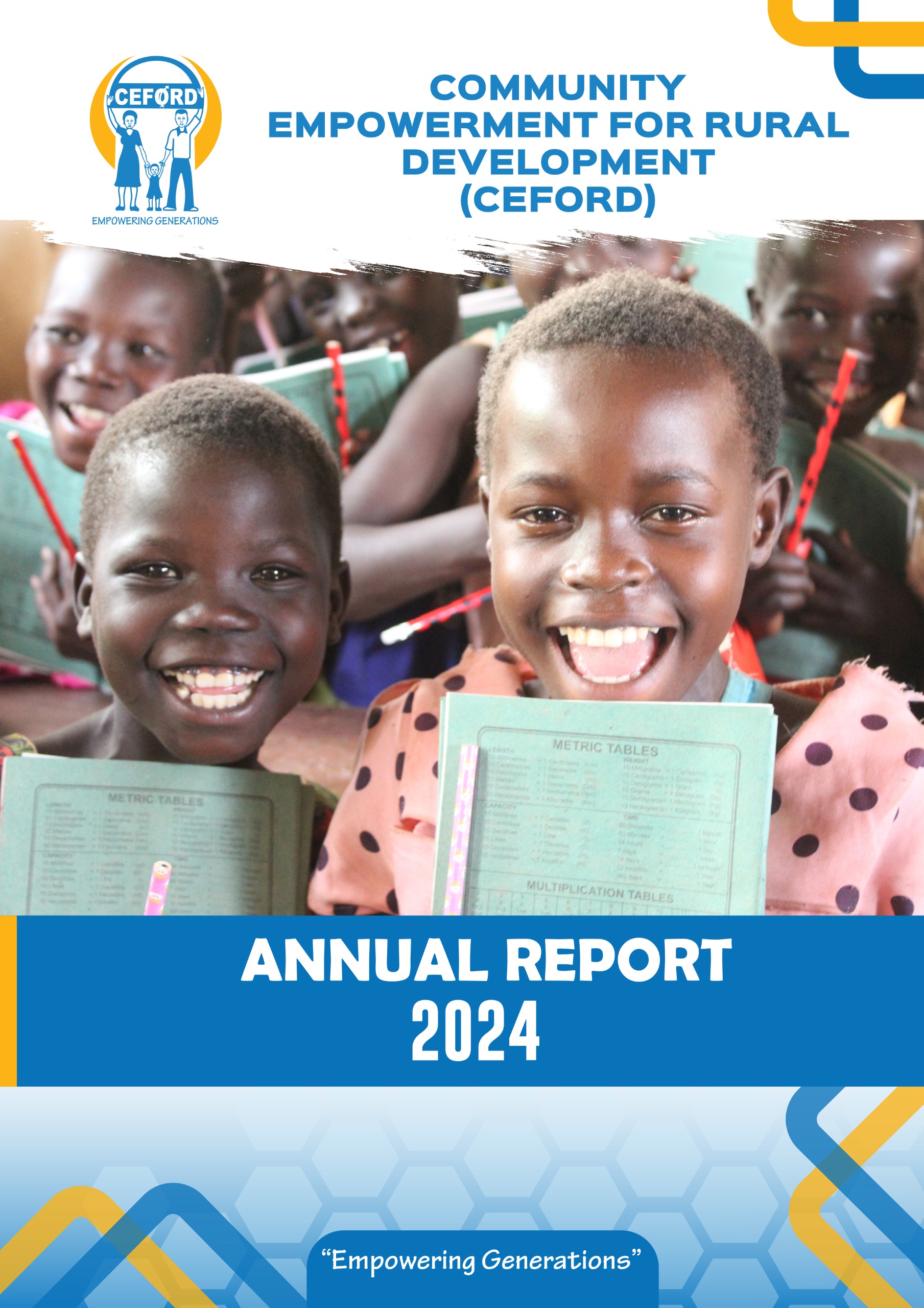Job summary: The Project Officer – Livelihood will lead the field implementation of activities, focusing on building community resilience through climate-smart agricultural practices, market access, Conflict transformation and livelihood enhancement for refugees and host communities. This role involves working with farmer groups, facilitating access to resources, and enhancing community capacity to adopt sustainable agricultural and economic practices.
About us
CEFORD is a not-for-profit Non-Governmental Organization registered in June 2000 as a Limited Liability (by Guarantee) organization with registration number M/A/NB2000/11/2710 and incorporation number 8001000460788 under the laws of Uganda regulating NGO operations. CEFORD is a registered member of the Uganda National NGO Forum since February 2002. CEFORD currently operates in parts of the Districts of West Nile: Adjumani, Arua, Terego, Madi Okollo, Moyo, Nebbi, Yumbe, Koboko, Maracha, Obongi and Zombo and part of Rwenzori Region (Kasese and Masaka Districts) and has extended its services to Kiryandongo. The Thematic areas are Education, Livelihood, Community Development, Humanitarian Action, Community Health, Protection and Organizational Development. CEFORD’s Vision is ‘An Empowered Poverty Free Society’; and its Mission is “To provide capacity development services that builds the resilience of disadvantaged women, men, youth, children and their groups/organizations to realize their rights and improve their wellbeing”. CEFORD is guided by the Corporate Values of Mutual Respect; Transparency and Accountability; Equity and Participatory Approach.
CEFORD in partnership with HERS-EPER is implementing the “Community resilience strengthening Project through Improved Livelihoods, conflict transformation and Climate Adaptation in Yumbe and Obongi districts”, The project aims at enhancing the resilience of vulnerable communities, particularly South Sudanese refugees and host communities, in West Nile, Uganda, with a target of 1,500 direct beneficiaries (60% refugees and 40% host community members). The initiative seeks to address the pressing challenges of resource competition, food insecurity, and climate change impacts exacerbated by the prolonged presence of refugees. In order to realize the project goal and objectives, CEFORD therefore invites application from suitably qualified candidates to fill the following Position;
| Job Title: | Project Officer – Livelihood – 02 Positions |
| Duty Station: | Yumbe (01) and Obongi (01) |
| Reports to: | Livelihood Coordinator |
| Contract period: | Fixed-term – (12 months, renewable) |
Key Responsibilities
- Regularly track and document the progress of climate-smart agriculture (CSA) activities, capturing data on adoption rates, community impacts, and income generation.
- Prepare and submit timely progress reports, ensuring that all activities align with project goals and donor requirements.
- Lead training sessions for local service providers on gender-responsive, climate-smart agricultural practices and resilience-building techniques and Foster a learning environment that encourages the adoption of regenerative practices and supports continuous skill development among project team members and community stakeholders.
- Oversee the establishment and training of Farmer Field Schools, which serve as platforms for practical learning in CSA, facilitating group dynamics that encourage peerto-peer learning and knowledge-sharing to strengthen the implementation and sustainability of CSA practices.
- Facilitate connections between smallholder farmers and local markets to ensure sustainable access to inputs (like seeds and fertilizers) and output channels for produce and collaborate with local stakeholders and private sector actors to enhance farmers’ market access, fostering long-term economic resilience for refugee and host communities.
- Lead community dialogues aimed at promoting peaceful coexistence between refugee and host communities, focusing on land access issues and equitable agricultural resource use to mitigate potential conflicts and foster collaborative resource management.
- Coordinate with public and private service providers to deliver regenerative climate-smart agricultural practices tailored to local community needs.
- Supervise extension service activities to ensure they are inclusive, context-appropriate, and effectively address the unique challenges faced by refugee and host communities.
- Conduct climate vulnerability assessments to understand local adaptation needs.
- Guide communities in developing action plans that address identified climate risks, incorporating local knowledge and scientific data for effective adaptation strategies.
- Develop and implement community-based early warning systems to improve preparedness for climate-related risks.
- Work with community leaders to establish monitoring mechanisms that inform timely responses to extreme weather events.
- Organize and profile farmer groups, including Village Savings and Loan Associations (VSLAs), to enable effective participation in CSA initiatives.
- Facilitate group formation, management, and training, ensuring they are structured to support long-term resilience.
- Ensure that women, men, and youth are equitably included in all CSA activities, addressing gender-specific barriers to participation.
- Promote inclusive decision-making processes and gender-sensitive practices throughout project activities.
- Provide hands-on guidance to community members on adopting regenerative agriculture practices, including soil health enhancement, water conservation, and agroforestry.
- Support households in implementing practices that boost productivity and resilience to climate change.
- Facilitate the flow of climate and weather information to communities using digital platforms and extension agents.
- Empower farmers to make informed decisions about planting and harvesting, improving their capacity to adapt to climate shifts.
- Design and facilitate conflict sensitivity assessments in project communities.
- Organize and lead community dialogue sessions, peace forums, and mediation activities.
- Train local peace committees and community leaders on non-violent conflict resolution techniques.
- Liaise with local authorities, traditional leaders, and other stakeholders to identify and mitigate conflict triggers.
- Monitor and report on peacebuilding indicators and outcomes.
- Contribute to the development of conflict transformation tools and training manuals.
Qualifications, Skills and Experience
- Bachelor’s degree in Agriculture, Environmental Science.
- At least 3 years of experience in livelihood and agricultural development projects, preferably within refugee or rural settings.
- Strong background in climate-smart agriculture, regenerative farming, and community mobilization.
- Proven experience in conducting training and facilitating community dialogues.
- Excellent interpersonal, communication, and organizational skills.
- Ability to work with diverse communities and stakeholders in challenging environments.
- Proficiency in using digital tools for data collection and market information sharing.
- Experience with project monitoring, reporting, and evaluation.
- Ability to ride motorcycle and valid riding permit is a must
How to Apply:
Application letters, accompanied by a detailed curriculum vitae and photocopies of relevant academic documents such as transcripts, certificates, and testimonials, along with the contact details (including email addresses and daytime telephone numbers) of three referees – two of whom must be your former supervisors – should be addressed to: The Executive Director – CEFORD P.O. Box 303 Arua. Hard copy applications can be delivered to CEFORD Offices in Arua, Yumbe, Paidha, Moyo and Adjumani. Electronic application having all the required documents combined as one pdf file (only for Livelihood Coordinator, Project Officer and MEAL Assistant Positions) should be emailed with the subject clearly marked “Position Applied-Name of Applicant” to recruitment@ceford.or.ug. All applications should reach the above address not later than Thursday 10th July 2025 by 4:00PM. Late submission of applications and those not in one pdf file will not be accepted. Only shortlisted candidates will be contacted.
NOTE: Women and persons with disability are encouraged to apply.




